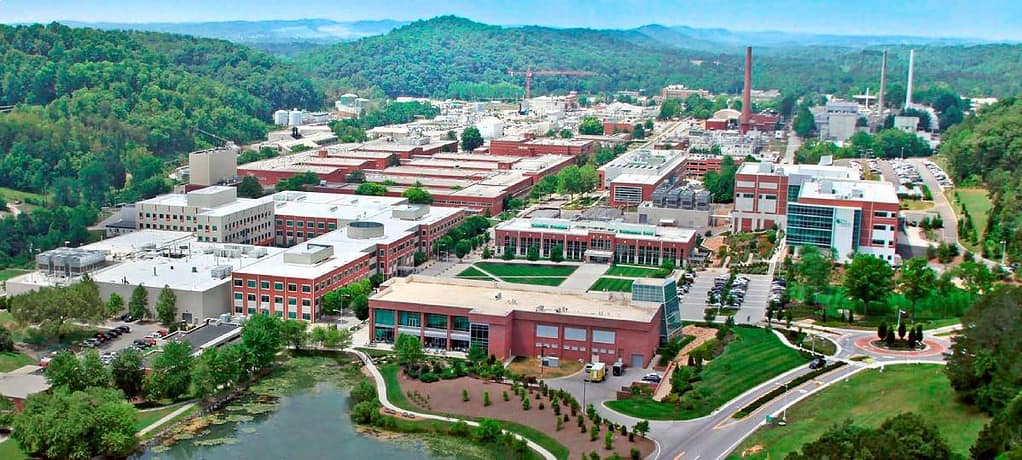“The NQISRCs leverage existing talent and expertise from academia, industry, and national labs to accelerate QIS breakthroughs that will advance DOE science. Equally important, they are committed to making QIS more accessible to students, early-career researchers and historically underrepresented groups in STEM. Through their outreach initiatives, the centers are ensuring a robust and diverse workforce for future QIS endeavors,” said C2QA Director Andrew Houck.
The Superconducting Quantum Materials and Systems Center at Fermilab is supported by the DOE Office of Science.
The Superconducting Quantum Materials and Systems Center is one of the five U.S. Department of Energy National Quantum Information Science Research Centers. Led by Fermi National Accelerator Laboratory, SQMS is a collaboration of more than 30 partner institutions — national labs, academia and industry — working together to bring transformational advances in the field of quantum information science. The center leverages Fermilab’s expertise in building complex particle accelerators to engineer multiqubit quantum processor platforms based on state-of-the-art qubits and superconducting technologies. Working hand in hand with embedded industry partners, SQMS will build a quantum computer and new quantum sensors at Fermilab, which will open unprecedented computational opportunities. For more information, please visit sqmscenter.fnal.gov.
The Quantum Systems Accelerator (QSA) is one of the five National Quantum Information Science Research Centers funded by the U.S. Department of Energy Office of Science. Led by Lawrence Berkeley National Laboratory (Berkeley Lab) and with Sandia National Laboratories as lead partner, QSA catalyzes national leadership in quantum information science to co-design the algorithms, quantum devices, and engineering solutions needed to deliver certified quantum advantage in scientific applications. QSA brings together dozens of scientists who are pioneers of many of today’s unique quantum engineering and fabrication capabilities. In addition to industry and academic partners across the world, 15 institutions are part of QSA: Lawrence Berkeley National Laboratory, Sandia National Laboratories, University of Colorado at Boulder, MIT Lincoln Laboratory, Caltech, Duke University, Harvard University, Massachusetts Institute of Technology, Tufts University, UC Berkeley, University of Maryland, University of New Mexico, University of Southern California, UT Austin, and Canada’s Université de Sherbrooke. For more information, please visit https://quantumsystemsaccelerator.org/.
Q-NEXT is a U.S. Department of Energy National Quantum Information Science Research Center led by Argonne National Laboratory. Q-NEXT brings together world-class researchers from national laboratories, universities and U.S. technology companies with the goal of developing the science and technology to control and distribute quantum information. Q-NEXT collaborators and institutions have established two national foundries for quantum materials and devices, develop networks of sensors and secure communications systems, establish simulation and network test beds, and train the next-generation quantum-ready workforce to ensure continued U.S. scientific and economic leadership in this rapidly advancing field. For more information, visit https://q-next.org/.
The Co-design Center for Quantum Advantage (C2QA) is one of the five National Quantum Information Science Research Centers funded by the U.S. Department of Energy Office of Science. Led by DOE’s Brookhaven National Laboratory, C2QA aims to overcome the limitations of today’s noisy intermediate-scale quantum computer systems by co-designing quantum materials, devices, and software and algorithms. The C2QA team includes more than 350 researchers from national labs, academia, and industry working together to achieve quantum advantage for scientific computations in high energy, nuclear, chemical and condensed matter physics. For more information, visit https://www.bnl.gov/quantumcenter/.
The QSC, a DOE National Quantum Information Science Research Center led by ORNL, performs cutting-edge research at national laboratories, universities, and industry partners to overcome key roadblocks in quantum state resilience, controllability, and ultimately the scalability of quantum technologies. QSC researchers are designing materials that enable topological quantum computing; implementing new quantum sensors to characterize topological states and detect dark matter; and designing quantum algorithms and simulations to provide a greater understanding of quantum materials, chemistry, and quantum field theories. These innovations enable the QSC to accelerate information processing, explore the previously unmeasurable, and better predict quantum performance across technologies. For more information, visit qscience.org.
UT-Battelle manages ORNL for the Department of Energy’s Office of Science, the single largest supporter of basic research in the physical sciences in the United States. The Office of Science is working to address some of the most pressing challenges of our time. For more information, please visit energy.gov/science.
This Oak Ridge National Laboratory news article "US Department of Energy National Quantum Information Science Research Centers celebrate 4-year milestone, look toward future" was originally found on https://www.ornl.gov/news

